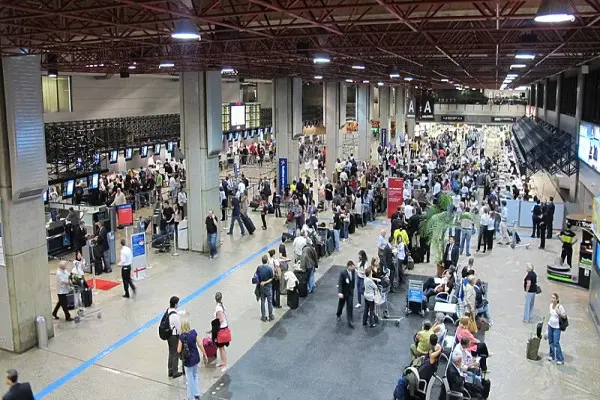Hundreds of asylum seekers from India, Nepal, and Vietnam have been stranded at São Paulo’s international airport for weeks, enduring harsh conditions as they await entry into Brazil, according to the Public Defender’s Office and documents reviewed by Reuters.
A representative from the office reported on Friday that a 39-year-old migrant from Ghana passed away two weeks ago under unclear circumstances. It remains uncertain whether he died while detained at the airport or en route to the hospital.
Currently, at least 666 irregular migrants without visas are stuck at Guarulhos airport, facing additional uncertainty as the government plans to tighten entry regulations on Monday to curb the influx of foreigners using Brazil as a transit point to reach the United States and Canada.
The asylum seekers are confined to a restricted area with no access to showers, limited mobility, and inadequate access to food and water. Children and adolescents are enduring the winter cold without blankets, the official added.
The Public Defender’s Office has identified human rights violations among the migrants, whose health is deteriorating.
The agency has called for immediate improvements to the migrants’ living conditions while their statuses are being resolved, urging authorities to adhere to Brazil’s humanitarian laws that mandate accepting refugees and not deporting them to their countries of origin.
Starting Monday, foreign travelers without a Brazilian visa who are en route to another country will be required to continue directly to their destination or return to their home country, Brazil’s public security ministry informed Reuters on Wednesday.
Brazil has recently experienced a surge in foreign travelers, particularly from Asia, who claim to be on layovers en route to North America. Upon arrival, they request refugee status, citing persecution and threats in their home countries, but many continue north when possible, according to two reports reviewed by Reuters and a senior police source.
Under the new rules, passengers arriving in São Paulo without a visa will no longer be permitted to stay in Brazil, according to the ministry.
It remains unclear whether these new regulations will affect migrants currently at São Paulo airport or only those arriving after the rules take effect.
Immigration experts are concerned that the proposed regulations may contradict the 1951 UN Refugee Convention, to which Brazil is a signatory, as it obliges countries to protect those at risk in their home country, even if they lack documentation.
Jean Uema, the head of Brazil’s refugee committee, told Reuters that the new rules would apply specifically to São Paulo airport and that Brazil’s overall asylum policy would remain unchanged.


